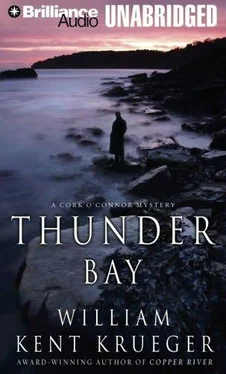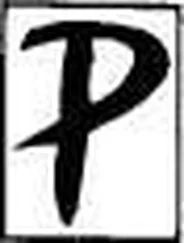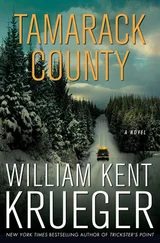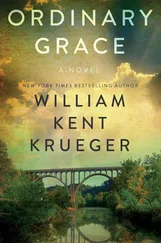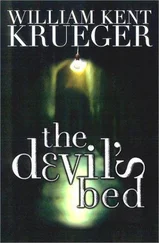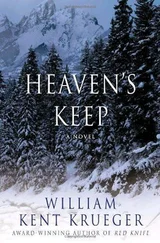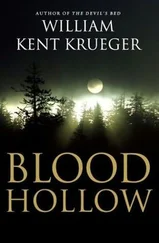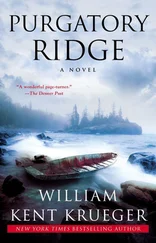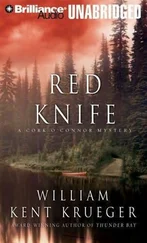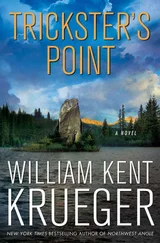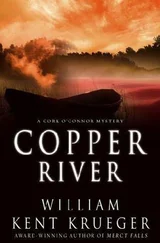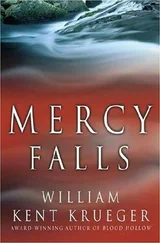William Krueger - Thunder Bay
Здесь есть возможность читать онлайн «William Krueger - Thunder Bay» весь текст электронной книги совершенно бесплатно (целиком полную версию без сокращений). В некоторых случаях можно слушать аудио, скачать через торрент в формате fb2 и присутствует краткое содержание. Жанр: Триллер, на английском языке. Описание произведения, (предисловие) а так же отзывы посетителей доступны на портале библиотеки ЛибКат.
- Название:Thunder Bay
- Автор:
- Жанр:
- Год:неизвестен
- ISBN:нет данных
- Рейтинг книги:4 / 5. Голосов: 1
-
Избранное:Добавить в избранное
- Отзывы:
-
Ваша оценка:
- 80
- 1
- 2
- 3
- 4
- 5
Thunder Bay: краткое содержание, описание и аннотация
Предлагаем к чтению аннотацию, описание, краткое содержание или предисловие (зависит от того, что написал сам автор книги «Thunder Bay»). Если вы не нашли необходимую информацию о книге — напишите в комментариях, мы постараемся отыскать её.
Thunder Bay — читать онлайн бесплатно полную книгу (весь текст) целиком
Ниже представлен текст книги, разбитый по страницам. Система сохранения места последней прочитанной страницы, позволяет с удобством читать онлайн бесплатно книгу «Thunder Bay», без необходимости каждый раз заново искать на чём Вы остановились. Поставьте закладку, и сможете в любой момент перейти на страницу, на которой закончили чтение.
Интервал:
Закладка:
“Tell him your concern, if you want to.”
“My concern? You think I’m not talking sense?”
“Try talking sense to Meloux. After everything he’s been through to get here, if he told me he was going to fly to this cabin, I’d say happy landing.”
“All right, how about this? It’s been seventy years since he was here, Cork. Hell, I can’t even remember what clothes I wore yesterday. You really think Meloux’s going to be able to find his way?”
“I guess we’ll see. By the way, your Colt Python is in the pack.”
“Good. I’ve been thinking about the guys in that SUV. Should we take the rifles?”
“How good are you with the Colt?”
“Pretty good,” Schanno said.
“Unless Wellington comes out with a bazooka, let’s stick with that.” I walked over to Meloux and risked intruding on his thoughts. “You doing okay, Henry?”
“I’m near the end of the journey, Corcoran O’Connor.”
“Can you tell he’s your son?” I thought about the faint copper color of Wellington’s skin and his dark eyes. They could have been from Shinnob blood, or just as easily from the Cuban blood of his mother.
Meloux didn’t answer immediately. The wrinkles around his eyes, already deep, went deeper as he stared at the log house. “My heart is out there waiting for his to come and meet it. We will see.”
That didn’t strike me as a resounding yes. Meloux had risked much to be here: his health, his life, and, because he’d admitted to murder, his freedom. I wanted the answer he gave me to be absolute and affirmative. I wanted him to say that the moment he set eyes on the man, he’d known Wellington was his son. All the evidence was there, yet I felt the old man holding back. To be a son, to be a father, these things were more than just a blood tie. Maybe that’s what the hesitation was about. Did the relationship matter if, in the end, Wellington didn’t give a damn?
Wellington came from the house and spoke to Benning on the front porch, a conversation too quiet to be overheard, then he joined us. He’d dressed rugged: L.L. Bean boots, Levi’s, a brown, long-sleeved Henley, and a camouflage jungle hat. He also carried a small pack. I wondered how much our loads might resemble each other.
“After you, sir,” he said to Meloux with what seemed to be genuine respect.
Meloux crossed the yard, heading west, parallel to the lake. Where the grass met the pines, he spent a few minutes studying the ground, then he was off, leading the way.
He didn’t burn up the woods with his speed, but he did keep a remarkably steady pace for a man who’d seemed ancient to me my whole life, and who, as Schanno noted, was lying in a hospital bed only days before. It helped that he was following a trail. It wasn’t well worn, but to an eye familiar with hunting or tracking, it was clear we were walking where others had walked before. This was August. The bugs swarmed: biting deerflies, blackflies, gnats, and mosquitoes. Schanno was slapping himself silly behind me, so we stopped and put on the DEET I’d brought. Wellington declined my offer to share the ointment, as did Henry. We crossed slender threads of creek water running silver between white rocks. In the middle of a small meadow, Meloux stopped, not from weariness, I realized, but to take in the beauty of the lavender wild bergamot that grew in profusion and whose leaves filled the air with a refreshing mint scent. Smells are the time machines of human perception. A scent can take you instantly back to a particular place and time. Watching Meloux stand, transfixed, with his eyes gently shut, I wondered if, in that moment, he was a young man again, in love, walking through the meadow with Maria.
“Are you tired?” Wellington asked. “We can rest.”
Meloux opened his eyes. The moment was gone. He shook his head and we moved on.
We came to the gray, rocky slope of a long ridge, where the trail disappeared. Meloux studied the incline. We’d been hiking for nearly an hour without a significant rest. Despite the DEET, bugs kept landing on my neck, trying to lap at the sweat there. I was aware that Schanno had been keeping a wary eye on the woods at our backs, and he was doing that now. Wellington watched the old Mide with intense interest.
Meloux put his hand on the stone of the slope. “Over seventy winters, things change. Trees die, others grow, and the way becomes clouded. But rocks do not change so easy. The rocks, I remember. There,” he said and pointed upward toward a small, dark gray spire around which nothing grew. “I used to think of it as a manidoo, a spirit showing the way.”
With that, he began to climb.
There’s no adequate measure of the human spirit, no scale to weigh the courage of the human heart. Just when you think you’ve plumbed the depth, dredged the last bucketful from the well, you discover how wrong you are. Once, when I was a cop in Chicago, I was the first to respond to the report of a shooting in an apartment building on Hyde Street. I arrived at the scene, the third-floor hallway, to find a wounded man propped against a hissing radiator. He had a bullet in his heart. Two more had shattered bone in his chest and lodged somewhere deep in his internal organs. The bare floor under him was slick with his blood. A dead man lay at his feet, a. 38 Ruger near his outstretched hand. The dead man’s windpipe had been crushed. A small boy peeked from the doorway of the nearest apartment.
“Daddy?” he whispered toward the wounded man.
Somehow, from somewhere unimaginable, that father found the strength to smile. “’S okay, Boo,” he said. “He won’t hurt you.”
And if that weren’t miracle enough, he managed to reach out and hug his son, who ran to him before I could prevent it.
It had been about drugs, about threatening the boy, and finally about what a father would do to protect his son. The wounded man died. The truth was that he was dead even as he crushed his killer’s windpipe to keep his son safe, but he’d tapped the deep reservoir of strength that lay behind his love for his child, and he’d done what, as a father, he needed to do.
I watched Meloux haul his ninety-year-old body up the ridge, and I knew that at that moment there was more to his strength than could be accounted for by those long walks from Crow Point to Allouette. It was possible, I supposed, that he might kill himself in this effort, but I understood there was no way any of us could stop him.
We climbed out of the shadow of the ridge and into the sunlight of early evening. It was seven thirty P.M. So far north, the sun would still be around for quite a while. Meloux led us down the other side, into shade again, and onto a trail that ran along a rushing stream.
Ten minutes later, we entered a clearing grown over with fire-weed and lupine. On the far side stood an old log structure, five feet wide and twice as long. The roof had collapsed decades before, but the four walls were still solid. The smokehouse, I thought.
We were in a deep trough between two hills. Sunlight hit the higher slopes and the pine trees there burned yellow and I heard crows arguing in the branches. Where we stood, everything was shadow and silence.
Meloux walked ahead slowly, parting the deep weed cover, peering carefully. Finally he stopped and turned back to us. “Here,” he said, indicating the ground at his feet. “Here, I cut the throat of the man who was my friend. And here, I put a bullet in the heart of a man who was not.” He turned to his right and went a couple of dozen paces, then walked in a slow circle. Finally he signaled for us to come.
As I neared him, I saw, deep in the tangle of undergrowth, the long black bones of burned timbers half buried in the earth.
“Dig here,” he instructed. “It should not be deep.”
Читать дальшеИнтервал:
Закладка:
Похожие книги на «Thunder Bay»
Представляем Вашему вниманию похожие книги на «Thunder Bay» списком для выбора. Мы отобрали схожую по названию и смыслу литературу в надежде предоставить читателям больше вариантов отыскать новые, интересные, ещё непрочитанные произведения.
Обсуждение, отзывы о книге «Thunder Bay» и просто собственные мнения читателей. Оставьте ваши комментарии, напишите, что Вы думаете о произведении, его смысле или главных героях. Укажите что конкретно понравилось, а что нет, и почему Вы так считаете.
